The taste of sunflower seeds is liked and recognizable to many. The disadvantage of the method of preparation and their distribution as a product on the market is that they are often tampered with plenty of salt.
Here is what the nutrient content of approximately 28.03 / one ounce/g sunflower seeds, roasted without salt is:
Calories - 164, Protein - 5.4 g, dietary fiber - 3.1 g
Content of minerals: Phosphorus - 327 mg., potassium - 241 mg., Magnesium - 37 mg.; Calcium - 20 mg., Iron - 1.08 mg., Zinc - 1.5 mg., sodium, 1 mg.; Selenium - 22.5 micrograms.; Manganese - 0.598 mg., Cu 0.519 mg.
Vitamins: Vitamin E - 7.4 mg., B5 - 1.99 mg., Vitamin C - 0.4 mg., vitamin B6, 0.22 mg.
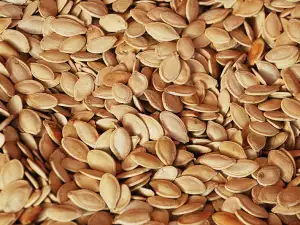
Pumpkin seeds - often used to garnish salads, they are also a favorite when roasted and salted. Although it is a bit specific, their taste is liked because they are easy to peel and the seeds have a unique green decorative appearance. One oz /28.3 g/ roasted pumpkin seeds contains the following particles:
Calories-163, proteins- 8.4 g, dietary fiber- 8.1 g
Mineral content: phosphorus 333 mg., Potassium 223 mg., Magnesium-156 mg., Calcium-15 mg., Sodium, 5 mg., Iron 2.2 mg., Zinc 17.2 mg., Mn-1.2 mg.
Vitamins: Vitamin B3-1.2 mg., Vitamin C, 0.5 mg. B5-0.16 mg.
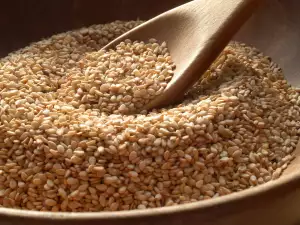
Sesame seeds have a wide range of uses. They can be added to almost everything: pasta, decoration to salads and even desserts. A tablespoon full of sesame seeds, which are not processed in any way, contain the following elements:
Calories: 52, protein- 1.6 g, dietary fiber- 1.1 g,
Content of minerals: calcium, 88 mg., Phosphorus 57 mg., Potassium 42 mg., Magnesium - 32 mg., iron 1.3 mg., sodium 1 mg., zinc 0.7 mg., Cu 0.36 mg., manganese, 0.22 mg.
Contents of vitamins: vitamin B3- 0.4 mg., vitamin B6- 0.07 mg. vitamin B1- 0.07 mg.
Flaxseed is a good source of natural medicine. It is bequeathed to us, even in the words of Hippocrates, who prescribed it for stomach pains. It is good ground or chopped, so its active substances are absorbed. One tablespoon of flax seeds contains:
Calories-55, 8.1 g protein, dietary fiber - 2.8 g
Content of minerals: potassium- 84 mg., Phosphorus- 66 mg., Magnesium-40 mg., Calcium-26 mg., sodium- 3 mg., Iron- 0.59 mg., Zinc- 0.45 mg., Manganese- 0.25 mg., Cu- 0.12 mg.
Vitamins: vitamin B3- 0.31 mg., B1- 0.16 mg., Vitamin C- 0.1 mg.
In a regime, consistent with a diet, these four types of seeds can be an essential ingredient of your daily intake. The lowest calorific value appears in sesame and flax seeds. With the indicators of dietary fiber, calculated using the same amount of seeds, flaxseed is best, then ranks sunflower.
Having more fiber in the composition of each product suggests to what extent it will affect the properties with which they are known. Fiber promotes good bowels and better clearing of toxins. Moreover, their daily consumption makes us feel more full and lets us consume less food.
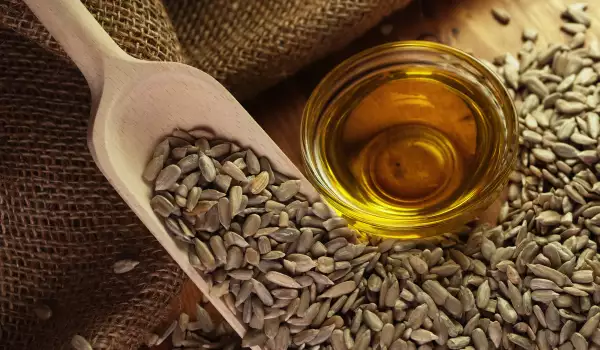
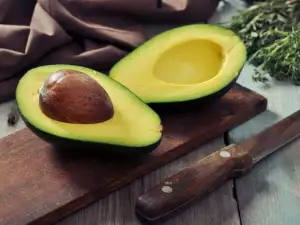


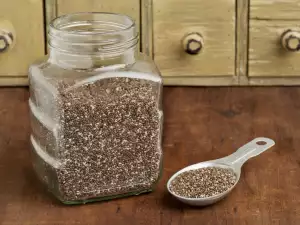



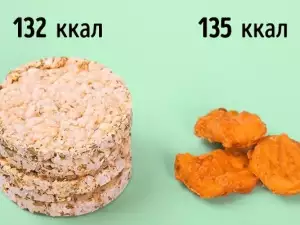
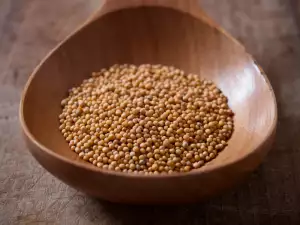


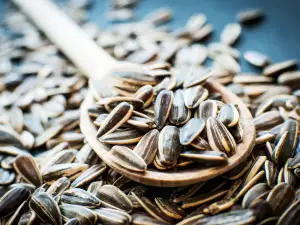




Comments